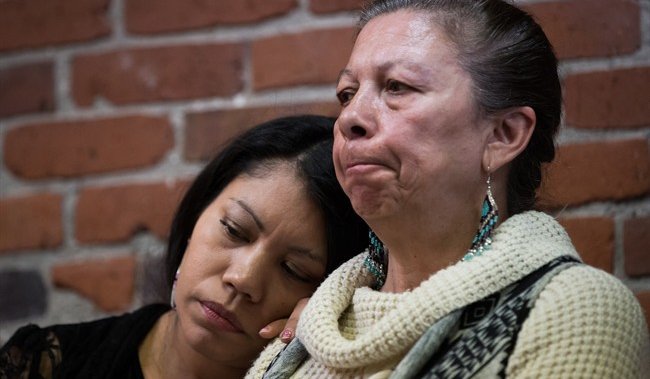
Families of Robert Pickton’s victims brace for his ‘horrific’ day parole application eligibility | Globalnews.ca
Pickton, now in his 70s, was charged with 26 murders in the deaths of women who disappeared from Vancouver's Downtown Eastside but only convicted in six of the killings.
picoton shouldnt get day parolle IMO.infact he shouldnt get out at all.
It’s been more than 20 years since police raided the B.C. farm of one of Canada’s most prolific serial killers, but according to Palexelsiya Lorelei Williams those painful decades have “flown by.”
Her cousin, Tanya Holyk is among more than two dozen women who were murdered or suspected to have been murdered, by Port Coquitlam pig farmer Robert Pickton.
The serial rapist — now in his 70s — was charged with 26 murders in the deaths of women who disappeared from Vancouver’s Downtown Eastside, but only convicted of second-degree murder for six of them.
On Thursday, he becomes eligible to apply for day parole.“The fact that he can actually apply is horrific,” Williams said Wednesday, ahead of a candlelight vigil taking place by Pickton’s old farm on Wednesday night.
That threw me right off. I didn’t know and the other families that I’m close to didn’t know.”
On Wednesday evening, she was joined by dozens of friends and family members of victims at the former site of Pickton’s farm in Port Coquitlam, where they hung posters, flowers and red dresses in memory of their loved ones.
It’s extremely unlikely that Pickton would ever be released, but Williams — a fierce advocate for missing and murdered Indigenous women and girls — said the mere fact that he can apply is “disgusting.”
“Our justice system is horrific. It’s racist and puts Indigenous women’s lives in danger,” she said. “It makes me sick to my stomach.”
Pickton was not convicted in Holyk’s death, but those of Marnie Frey, Mona Wilson, Andrea Joesbury, Sereena Abotsway, Brenda Wolfe and Georgina Papin.
The remains or DNA of 33 women were found on his property following searches conducted after reports of illegal firearms in 2002. Police also seized more than 200,000 exhibits, including three freezers of more than 400 meat products, some of which contained unknown samples.
Pickton was sentenced to life in prison in 2007, and in 2010, after the Supreme Court upheld his sentence, 20 other first-degree murder charges against him were stayed as he was already serving the maximum sentence.
The families of those he killed have faced an uphill battle for justice, most recently, having fought applications by the B.C. RCMP to dispose of, destroy or return an estimated 14,000 exhibits kept in connection with the case.
In December, the families penned a letter opposing the move to the federal public safety minister, B.C. attorney general, and commissioner of the RCMP, co-signed by more 40 organizations and advocates across Canada.Sasha Reid, an applied psychologist and the creator of database of Canada’s unresolved cases of missing and murdered people, said the lack of public consultation on those applications is concerning.
This was an application that potentially connects to human remains and human materials,” the University of Calgary instructor told Global News.
Get the latest Barrie news. Sent to your email, every day.
“I think given the amount of stress the family has been under, the amount of lies they’ve been told, the lack of information they have access to — this is something that at the very least, they should have been informed about.”
Reid, who is also Métis, said the Pickton case is of “national significance” and one in which “blunders and missteps have happened at almost every single step.”
Global News uncovered a copy of one RCMP application filed in February 2021, which stated none of the exhibits Mounties sought to dispose of contained any human remains. The judge ordered the exhibits to be destroyed.
“How is it that you came to that conclusion?” Reid asked, calling for scientific evidence that those items have been tested and found to be free of DNA.







